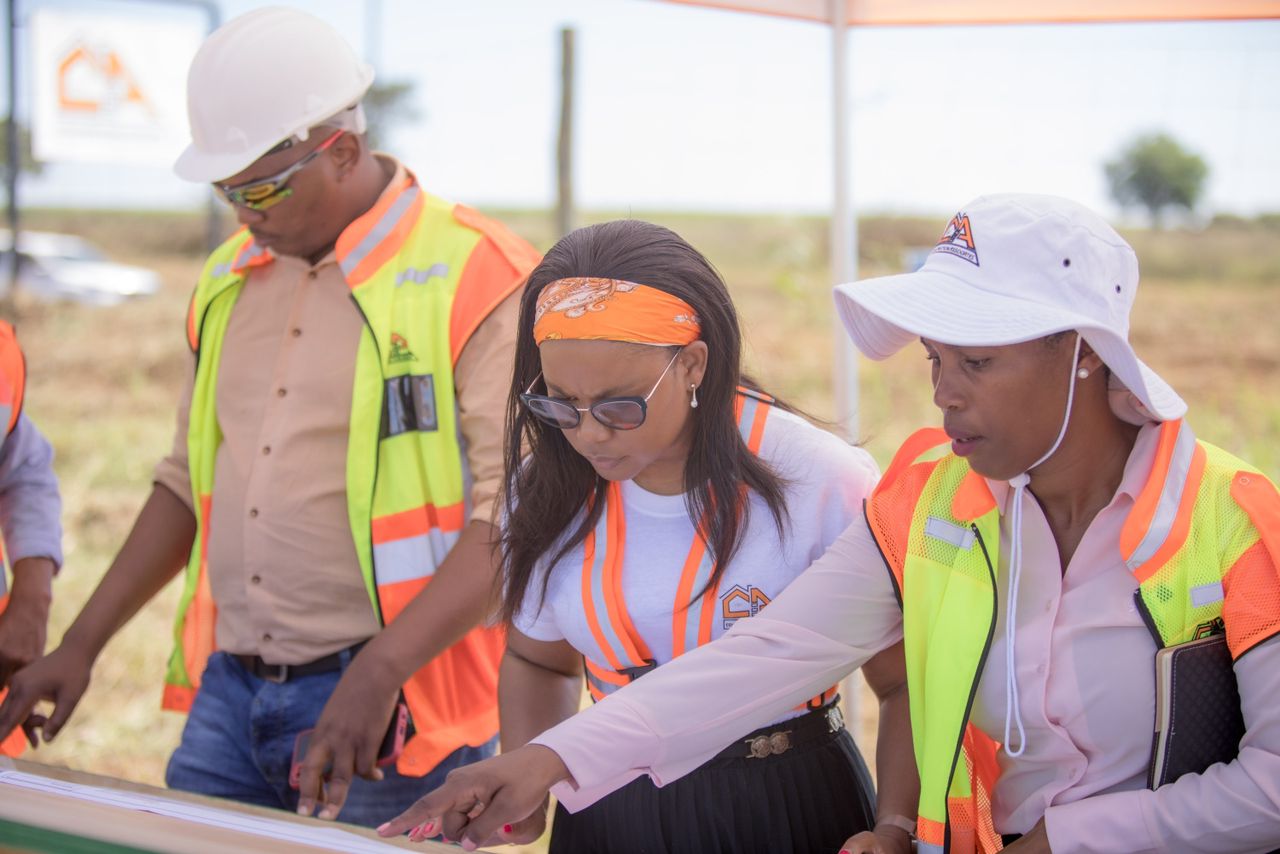
Stories by Phephile Motau
Women are underrepresented in the country’s construction industry, according to a report by the Construction Industry Council (CIC).
The report titled ‘Gender Inclusivity in the Construction Industry’ found from the sampled construction companies, where about a total of 5 283 employees were recorded that only 19 per cent were female and the rest male.
The report states that from the mechanical works category sampled, it was observed that there was no women representation and that male employment especially those with expertise in mechanical engineering dominated. Some in the building works category consisted of one to two female employees in each company.
The organisation further found that the average skill dominated by women in construction was mainly administrative work with 32 per cent of women employed in different fields such as marketing, human resources, secretariate, clerking, and housekeeping. It was found that about 12 per cent of women were observed to be in engineering which is the dominant technical-related construction field for women.
About 10 per cent of women were found to be Quantity Surveyors
The organisations said there was no women representation observed in terms of employment for civil and mechanical works.
According to the report, from the estimated 5283 employees sampled in the construction industry; 14 (0.3 per cent) women are board members, 36 (0.7 per cent) are in management, 85(1.6 per cent) are found to be working in construction-related technical positions and 92(1.7 per cent) are stationed in other support departments like housekeeping and driving.
Read More: King’s dream of turning Hlane into a bustling cultural town coming true
The report states that from the gathered information from the few that support women in construction, about 26 per cent of the construction industry does advocate for women’s employment by hiring them in simple roles that do not require manpower as per the norm.
Approximately 17 per cent of the construction industry makes an effort the hiring women by creating custom-fit roles such as consultancy and administrative work however, the industry is observed to be gradually introducing the hiring of women in all trades. About 16 per cent of the industry introducing the hiring of all trades is capacitated by furnishing and providing women with the necessary tools and resources needed to execute their work, especially in painting, carpentry, plumbing, and health and safety.
Some industry players have commenced introducing employment equity policies to balance males and females. The balancing is executed by doing a pay equity analysis and in this way, they try to treat employees equally.
Moreover, 26 per cent of the construction industry supports women through non-discriminatory campaigns, and promotions such as women’s day celebrations, enacting company rules, code of conduct, and policies protecting women from sexual harassment and indecent or offensive language.

Also, about 15 per cent of the construction industry maintains communication open among all team members. Communication is mostly done by having constant meetings and briefings to flatten the curve of unfair practices and treat women with the utmost respect and equality with men.
Furthermore, some construction companies also emphasize the fair opportunity to demonstrate key knowledge of trade on the employment application hence women are included in posts advertised.
Read More: ‘Well-established construction companies must pay reduced tax’
The CIC said there are also opportunities for women to take charge of smaller tasks and demonstrate workmanship and trade application skills during the apprenticeship and probationary periods. Upon the completion of the probationary period and integration into existing teams, women are allowed to have the opportunity to lead projects as head technicians and take full responsibility for the project outcome.
Smaller firms not encouraging women’s participation
The CIC said the construction industry especially those smaller in size is characterised by the number of employees, premises, turnover, grade (that is new entrants like B6), and more either in terms of employment or having initiatives and/or policies in place that capacitate their participation.
It was further stated that their facilities are structured in such a way that they favour only men’s employment. The organisation said with a majority of the labour population being dominated by males, the construction industry has little or no policies that provide for women’s needs, especially maternity leave as stipulated in the government gazette.
It was stated that about 39 per cent of the construction industry provides maternity leave for women and approximately 37 per cent provides for baby nursing; the remaining industry does not benefit from maternity or baby nursing. Only about six provide medical aid as added care.
The survey found that about 41 per cent of industry players provide separate toilets with an adequate supply of toilet papers and bins for disposing of sanitary towels on all sites, and 41 per cent provide appropriate PPEs for female employees while others provide the facilities but do not on sites.
About 18 per cent had safe, clean, separate resting rooms/areas both at the offices and on sites and separate accommodation when staying in locations overnight/s far from the base of location.
Read More: Contractors against rescinding of ECA suspension
Only big industries seem to provide safe, clean, separate toilets and resting places for all employees at their offices and sites. As a solution, the CIC said the survey results show that the Council should come up with safety regulations to which all companies should adhere part of which should emphasise company policies where if employees do not comply, face consequences.
Findings from the industry indicate that more education and training on women’s inclusivity and making it compulsory is important, especially for on-site managers. Also training the construction industry on how to handle each other as professionals, regardless of gender is needed.

The organisation said survey results also show that there must be safety regulations for women especially improving work from home rather than experiencing staying in the work environment till late. This will lead to the promotion of women in construction.
Women in leadership positions can address concerns
The CIC says having women in leadership and shareholding positions implies that women are better placed in decision-making where women’s constraints within the construction industry stand to be addressed.
It was stated that the construction industry requires both physical and mental exertion. Even though working within the industry may be deemed to require physical strength, workers must also be able to think cognitively and exhibit sharp problem-solving skills.
Read More: Construction of Strategic Oil Reserve facility starting in April
This is another area in which women are capable of excelling and is necessary for the construction industry. Whether employees are actively working on a job site, creating blueprints, or budgeting for a new project, a project requires a strong combination of ideas. With women in decision-making roles, they have much to bring to the table and can visualize a project differently by unveiling new insights or ways of working that would otherwise go unnoticed.
The organisation found that the Eswatini construction industry is dominated by male ownership where there are few women; in terms of shareholding inferences, on average, about 68 per cent of the construction industry has no women owning some shares, and the remaining 32 per cent of the construction companies that do have shares, only four per cent have 100 per cent shareholding.
Since the industry is male-dominated, it takes time for women to be promoted to deserving positions which are influential within the organisations.
The CIC said organizations tend to overlook them in bigger responsibilities because of the unconscious biases that exist due to their maternal responsibilities.
The report states that other challenges faced by women in construction include irregular working hours for women which include extended hours, lifting of heavy machinery/equipment, shared portable restrooms, and sexual harassment in other organisations.
However, it is not the entire industry that encounters such challenges as they are mitigated through enabling and corrective initiatives.




